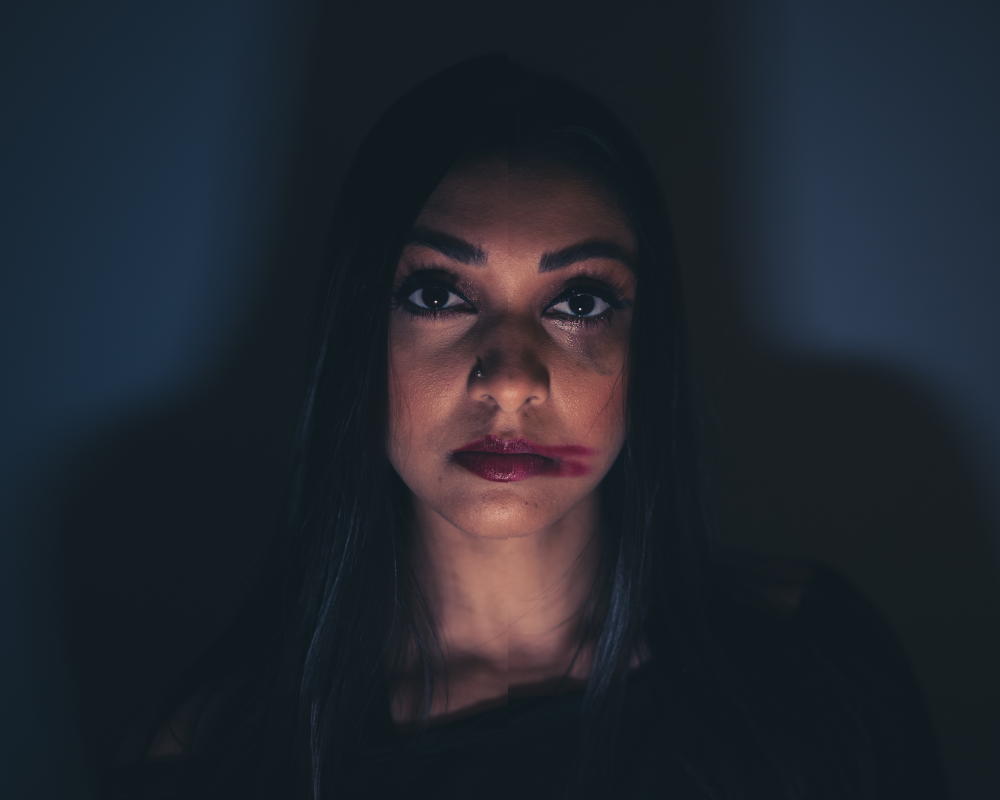
*trigger warning: domestic abuse and emotional abuse
Emotional and domestic abuse can be difficult to identify in brown communities. No one speaks these words out loud, and we’re trained that this is what love looks like. What may feel right also hurts, and we carry guilt that we are the cause of that hurt.
My story is an example of how relationship standards can be transmitted from generation to generation — subconsciously. Growing up with conflicting messages of what a healthy relationship looks like can blur the lines around control, jealousy, negative criticism, manipulation and isolation making them seem like a typical side effect of love. These messages are instilled in us from an early age and can manifest in various forms in adulthood.
When my mom was divorced from my dad, I was six years old, so theoretically I had limited exposure to him and their relationship. It wasn’t until I was 19, and found myself in my third consecutive abusive relationship. It was then that my mom brought the red flags to my attention I had been blind to my entire life. She made direct parallels to my dad that led me to the jarring realization that abuse isn’t just physical, but emotional, and I unknowingly was seeking men who were like my dad.
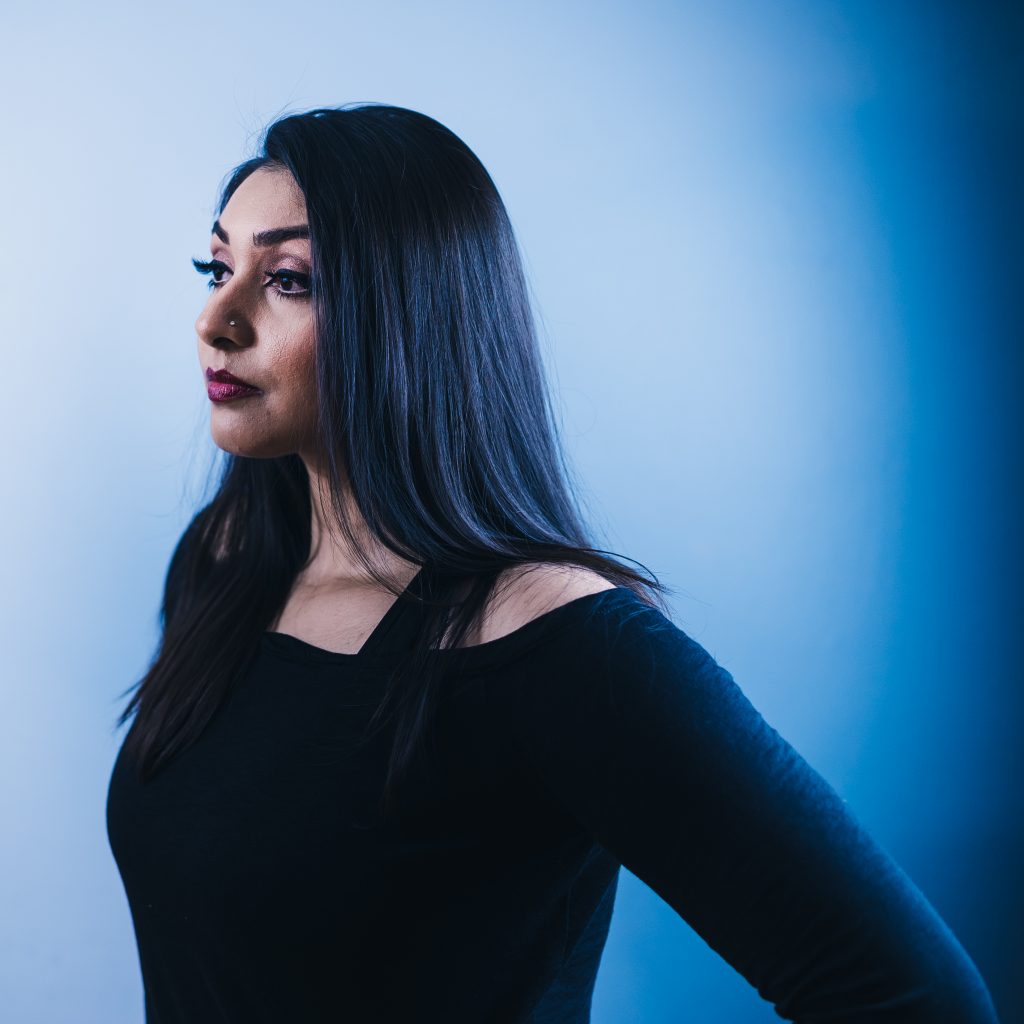
I then found myself in four consecutive abusive relationships by the age of 22, one that continued on and off for over 10 years between the ages of 14-26. When I started working in the mental health field that I started recognizing how these relationships had impacted me. Having positive male role models in my family didn’t prevent me from falling into abusive cycles. Innately, I felt as though I didn’t have a voice watching my mom be silenced by society my whole life. She was never truly able to make decisions for herself, between being born and raised in America in the ’60s by strict parents to going into an emotionally abusive marriage, then returning to my grandparents home post-divorce.
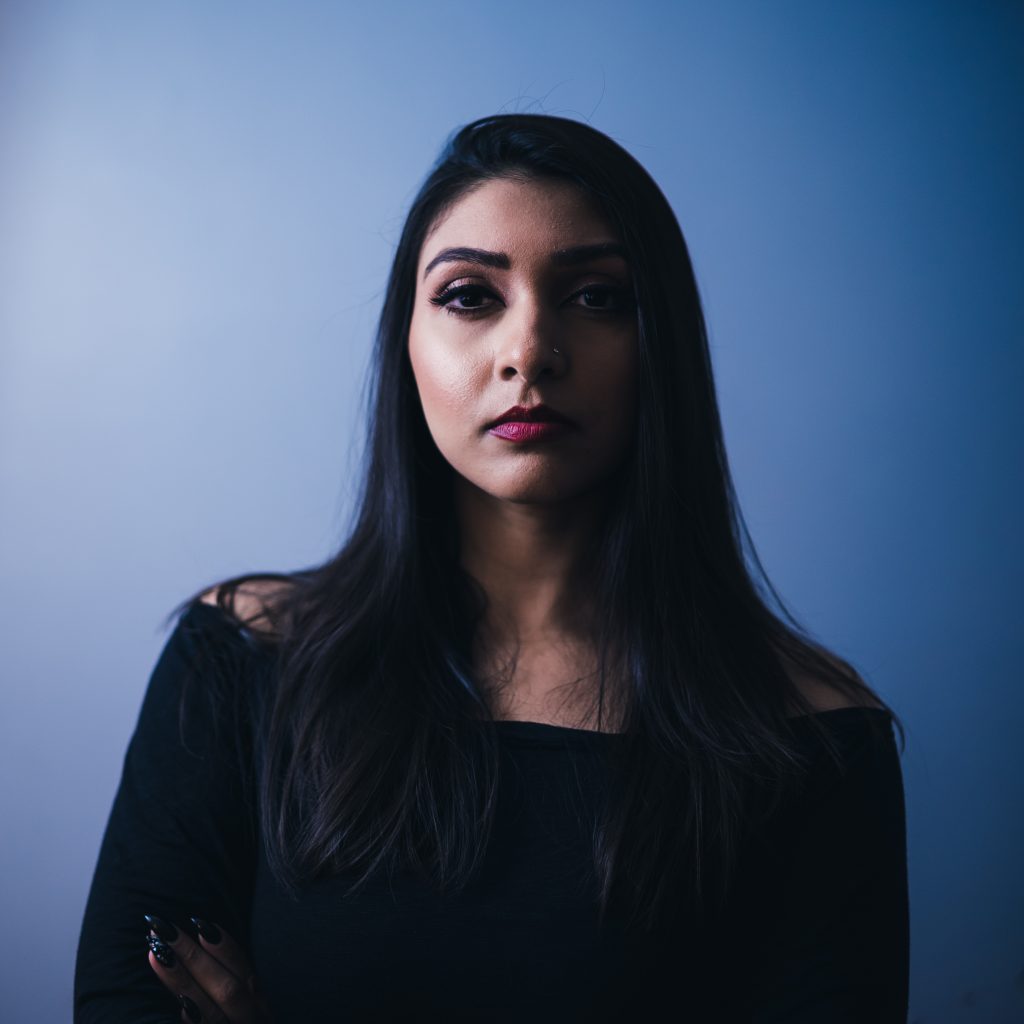
Just because your environment and experiences involved abuse, doesn’t mean you can’t break free, heal and have healthy meaningful relationships. Be patient with the process and allow yourself the time to heal. I want to share what I’ve learned working with people who have experienced abuse and from my own experiences.
Listen to your loved ones, I was often told that people couldn’t read me, I wasn’t happy, and didn’t express my feelings. The walls I protected myself with were REAL, my body was protecting me from vulnerability and possible danger. I didn’t know how to react to niceness, and everything I knew I deserved. After five years of therapy, I learned to open up to my close friends, who didn’t know what I experienced until a recently and made it a habit to reach out when I needed support. I practiced mindfulness to catch myself in moments where I felt disconnected or was restricting myself from being vulnerable.
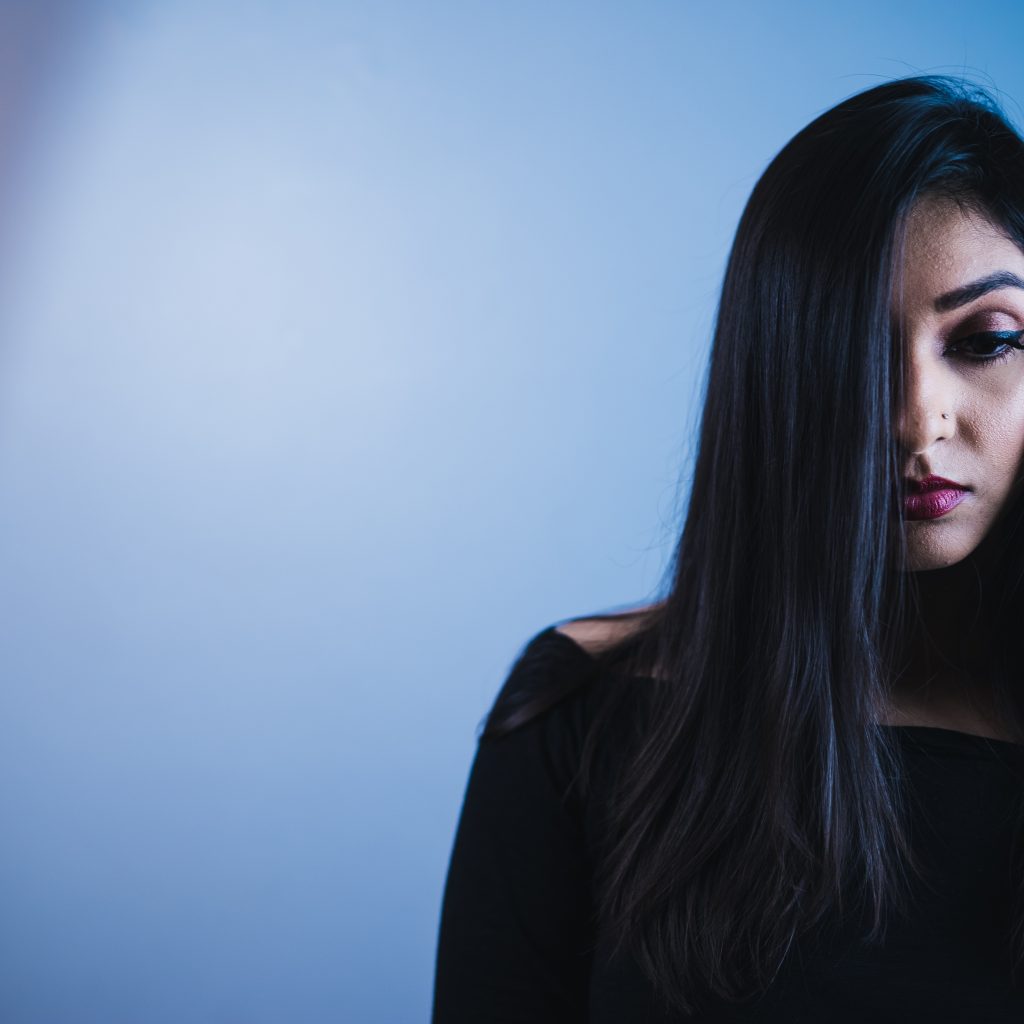
Abusive relationships can often result in a diminished sense of self and self-esteem. Allow yourself the time and space to reconnect with yourself and find your voice. I had become a submissive woman who couldn’t connect with her voice, or get gas for her car alone. I still catch myself saying “I don’t know” or “whatever you want” and learning how to handle certain tasks I was used to having done for me. I truly felt that I couldn’t make decisions, or handle life’s bumps without the support of my ex as he led me to believe. It took two years of soul searching and dating men who were the complete opposite of him to recognize that my perspective on dating was flawed and work through my trigger responses.
It is common to be extremely reactive to triggers such as people, places, words, things, smells, acts/actions related to abusive experiences or the abuser. Some of these triggers may result in automatic reactions such as physical startle responses, panic attacks, rage and shutting down. Once you become aware of your own triggers and responses, you can learn how to cope with and eventually extinguish them. Take your time to notice the themes in your reactions, find healthy coping skills you enjoy doing (mindfulness, relaxation, distractions) and communicate with those around you. I found it helpful to expose myself to my triggers intentionally with my close friends and allow myself to feel every emotion that surfaced, then create a new fun memory in that space. Communicate your triggers when dating a new person and allow space for conversation around how to make you feel safe.
Make lists and check them thrice! Make lists of the unhealthy aspects of your abusive relationship, characteristics in that partner you wish to avoid, and lists of what you would like in a healthy relationship and partnership. These help us stay accountable and set a new standard for ourselves. Everyone deserves a healthy, loving, respectful relationship. Create affirmations weekly or daily to help remind yourself that you are enough, you are safe, you are love.
Are you or someone you love living in an abusive relationship?
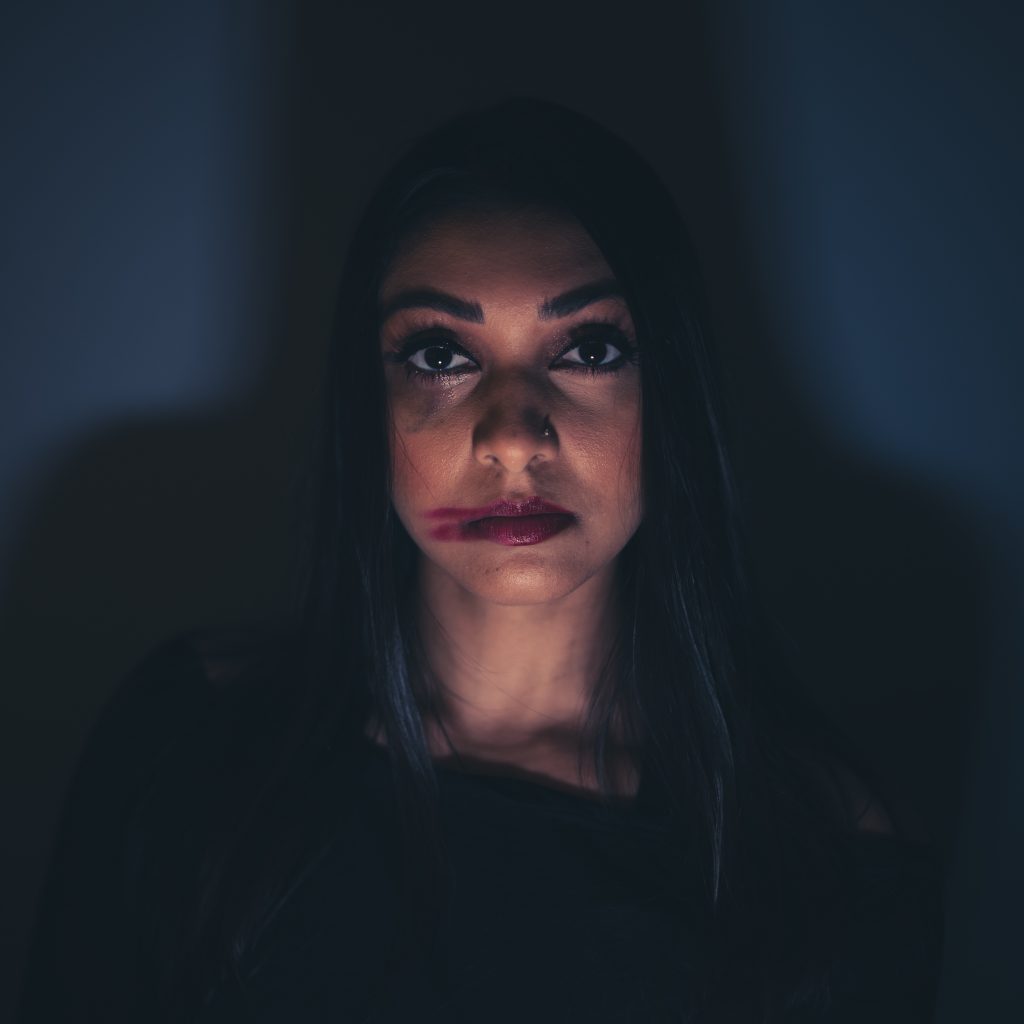
Abuse includes physical, sexual and emotional harm. Abusive relationships are cyclical in nature and have patterns; they can stem from dysfunction and unrealistic/irrational ideas about what it means to love. Physical abuse includes hitting, aggressive pushing, grabbing, or any unwanted or aggressive physical contact including sexual violence.
Emotional abuse can be more difficult to detect and heal from. Signs of emotional abuse include control, guilt, and manipulation. Creating dependence on the point of self-doubt. Isolation for extended periods of time causing the person to be without contact for days to weeks which often leads to guilt, anxiety, and depression. Other indicators include name calling, put downs, extreme and negative criticism that encourage self-hate. This behavior can stem from the abuser’s personal history of trauma, jealousy, and insecurity.
It’s healthy to seek help, go to therapy, and allow yourself to heal and break the generational cycles of abuse. There is a life after living through abuse, everyone’s journey is unique. Be patient with your journey, you’re not alone.
If you suspect you or someone you love is experiencing abuse, the following South Asian organizations are available for assistance:
SOUTH ASIAN RESOURCES BY STATE
ALABAMA
AshaKiran
PO Box 1021, Huntsville, AL 35807
24-hour Hopeline: (256)-509-1882 and toll-free crisis line: (800)-793-3010
Email: ashakiran@ashakiran.com
Phone: (256) 698 – 4446
Website: ashakiranonline.org/
ARIZONA
ASAFSF, Arizona South Asians for Safe Families
PO Box 2748, Scottsdale, AZ 85252-2748
Hotline: 1-877-SAFE-711 (1-877-723-3711)
Email: info@asafsf.org, asafsf@gmail.com
Website: asafsf.org
ASAFSF is a registered, nonprofit, community-based organization providing support and services to victims of domestic violence in the South Asian community in Arizona.
CALIFORNIA
Maitri
PO Box 697 Santa Clara, CA 95052
Helpline (888) 8 MAITRI (800.862.4874) Mon- Fri 9:00 AM to 1:00 PM
Office (408) 436 8398
Fax (408) 503 0887
Email: maitri@maitri.org
Website: maitri.org
Cultural Displacement, Conflict Resolution and Domestic Violence – Transitional House services available.
Narika
P.O. Box 14014
Berkeley, CA 94714
Hotline (800) 215 7308
Office (510) 540 0754
Fax (510) 540 0201
Email: narika@narika.org
Website: http://www.narika.org
DV organization
Orphans & Battered Women Foundation International, Inc.
2680 N. Vista Glen Road
Orange, CA 92867-1739
Office (714) 637 1613
Fax (323) 725 6969
Sahara
17918 South Pioneer Blvd. Suite 206
Artesia, CA 90701
Hotline (888) 724 2722
Office (562) 402 4132
Fax (562) 402 6096
Email: saharaorg@yahoo.com
Website: charityfocus.org/sahara
DV organization
My Sahana
P.O. Box 361301
Milpitas, CA 95036-1301
Office: (408) 657 9569
Website: mysahana.org
Awareness about mental health, emotional health, and overall well-being in the South Asian community by providing culturally-sensitive information as well as helpful resources and tips.
South Asian Network
18173 South Pioneer Blvd. Suite 1
Artesia, CA 90701
Helpline (800) 281 8111
Office (562) 403-0488
Fax: (562) 403 0487
Email: saninfo@southasiannetwork.org
Website: southasiannetwork.org
Trikone
O. Box 14161
San Francisco, CA 94414
Voicemail (415) 487 8778
Email: trikone@trikone.org
Website: trikone.org
Serving Lesbian, Gay, Bisexual, and Transgender South Asians.
CONNECTICUT
Sneha
P.O. BOX 271650
West Hartford, CT 06127-1650
GEORGIA
Raksha, Inc.
P.O. Box 12337 Atlanta, Georgia – 30355
Office (404) 876 0670
Toll-Free (866) 725 7423
Toll-Free (877) 672 5742
Helpline (404) 842 0725
Fax (404) 876-4525
Email: raksha@mindspring.com
Website: raksha.org
DV organization
ILLINOIS
Apna Ghar
4753 N. Broadway, Suite 502 Chicago, IL 60640
Crisis line (800) 717 0757 Illinois only
Out of State (773)334 4663
Office (773) 334 0173
Fax (773) 334 0963
Email: info@apnaghar.org
Website: apnaghar.org
DV Organization – Shelter services available.
Hamdard Center
228 E. Lake Street, Suite 300
Addison, IL 60101
Office (630) 835 1430 (630) 860 9122
Email: admin@hamdardcenter.org
Website: hamdardcenter.org
Khuli Zaban
Chicago/Illinois/ Ohio/Michigan/Indiana areas
Phone (312) 409 2753
The South Asian/Middle Eastern Lesbian, Bisexual, and Transgender Women’s Organization.
MARYLAND
ASHA Asian (Women’s) Self- Help Association
P.O. Box 34303
West Bethesda, MD 20827
Hotline (800) 799.7233
Office (202) 207 1248
Email: asha@ashaforwomen.org
Website: ashaforwomen.org
DV organization.
Counselors Helping Asian Indians (CHAI, Inc.)
4517 Redleaf Court
Ellicott City, MD 21043
Office (410) 461 1634 Ext 2
Email: raziachai@hotmail.com
MASSACHUSSETS
Asian Task Force Against Domestic Violence
24 Hour Multilingual Hotline: (617)338-2355
Email: info@atask.org
Website: atask.org
Saheli
P O Box 1345
Burlington, MA 01803
Office (866) 4SAHELI
Website: saheliboston.org
MICHIGAN
Michigan Asian Indian Family Center (MAIFS)
28650 11 Mile Rd Suite 218 Farmington Hills, MI 48336
Hotline (888) 664 8624
Office (248) 477 4985
Email: info@maifs.org
Website: maifs.org/
Helping DV victims, widowed/divorced spouses, mental depression, and medical illness patients, and elderly persons.
NEW JERSEY
Manavi
P.O. Box 3103 New Brunswick, NJ 08901
Office (732) 435 1414
Fax (732) 435 1411
Email: Manavi@manavi.org
Website: manavi.org
DV Organization, Transitional House services available.
NEW YORK
Womankind
24-Hour Multilingual Helpline: 1.888.888.7702
9 Mott Street, Suite #200
New York, NY 10013
Monday, Wednesday-Friday: 9am-6pm
Tuesday: 9am-7pm
Islamic Center of Long Island, Domestic Violence Committee
835 Brush Hollow Road
Westbury, NY 11590
Office (516) 333-3495Fax (516) 333 7321
Email: icli.icli@verizon.net
Pragati
11-45 Union Turnpike, Lower Level
Forest Hills, NY 11375
Office (516) 487 0929
Fax (718) 459 2971
Email: pragatiinc@aol.com
Saathi of Rochester
P O Box 92
East Rochester, NY 14445
Office (585) 234 1050
Email: saathi_rochester@yahoo.com
Website: saathiofrochester.org
Sakhi for South Asian women
PO Box 20208
Greeley Square Station
New York, NY, 10001
Helpline (212) 868 6741
Office (212) 714 9153
Fax (212) 5648745
Email: contactus@sakhi.org
Website: sakhi.org
NORTH CAROLINA
KIRAN
1012 Oberlin Rd, Raleigh NC, 27605
Office phone: 919-831-4203
Office fax: 919-839-6203 24/7 Crisis Hotline: 1-877-NC-KIRAN Email: kiran@kiraninc.org Website: www.kiraninc.org
DV organization – Promote the self-reliance and empowerment of South Asian women who are in crisis through outreach, peer support, and referrals in a confidential manner.
OHIO
ASHA- Ray of Hope
4900 Reed Road, Suite 300, Columbus Ohio -43220
Email: asharayofhope@sbcglobal.net
Office number: 614-326-2121
Helpline number: 614-565-2918 (24/7)
OREGON
South Asian Women’s Empowerment and Resources Alliance (SAWERA)
P.O. Box 91242 Portland, OR 97291 0242
Helpline (503) 778 7386
Office (503) 641 2425
Email: sawera@sawera.org
Website: sawera.org
DV – organization – Provides free referrals to South Asian women domestic violence (DV) victims seeking shelter, legal help, job placement, childcare and counseling.
PENNSYLVANIA
Service and Education for Women Against Abuse (SEWAA)
P.O. Box 1591 Havertown, PA 19083
Office (215) 62 – SEWAA
Email: sewaa@sewaa.net
Website: sewaa.net
TEXAS
Asians Against Domestic Abuse (AADA)
PO Box. 420776 Houston TX 77242Office (713) 339 8300
Email: info@addainc.org
Website: aadainc.org
DV help to all Asian women
An-Nisa’ Hope Center
P. O. Box 1086,Spring, TX 77383-1086
Tel: (713) 339-0803 Fax: (281) 719-0355
Email: info@annisahopecenter.org
Website: annisahopecenter.org/
Services include Education and Career Training, Shelter, Medical and Legal Assistance, and Outreach. Promoting a new beginning through: Outreach, Education, Counseling. Bridging the gap with: Training, Job placement, Medical, and legal aid. Other Goals: Providing a safe and healthy, Islamic Environment
Chetna
P O Box 832802
Richardson, TX 75083
Email: chetna_dsw@yahoo.com
P.O. Box 571774
Houston, TX 77257
Office (713) 981 7645
Email: info@dayahouston.org
Website: dayahouston.org
DV organization
Saheli
P. O. Box 3665
South 5th Street
Austin, TX 78764
Office (512) 703 8745
Email: saheli@saheli-austin.org
Website: saheli-austin.org
DV Organization – to work toward preventing abuse in family relationships, to break the cycle of violence and pursue a cycle of peace.
WASHINGTON
Chaya
O. Box 22291
Seattle, WA 98122-0291
Toll-free (877) 922 4292
Hotline (206) 325 0325
Office (206) 568 7576
Email: chaya@chayaseattle.org
Website: apichaya.org/
DV organization – Provides translation and interpretation services, referrals to shelters, counseling, medical services, legal and immigration services, community outreach, and training.
WASHINGTON, D.C.
KhushDC
Website: khushdc.org
DV organization – Provides a safe and supportive environment, promotes awareness and acceptance, and fosters positive cultural and sexual identity for Lesbian, Gay, Bisexual, Transgender, Questioning(LGBTQ) and additional gender or sexual minority South Asians in the Washington D.C. Metropolitan Area.




